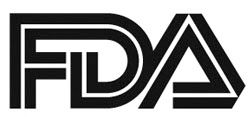FDA Grants Accelerated Approval to Tazemetostat for Patients With Epithelioid Sarcoma
Accelerated approval has been granted by the FDA to the methyltransferase inhibitor tazemetostat for the treatment of metastatic or locally advanced epithelioid sarcoma in adult and adolescent patients who are not eligible for complete resection.<br />

Accelerated approval has been granted by the FDA to the methyltransferase inhibitor tazemetostat (Tazverik) for the treatment of metastatic or locally advanced epithelioid sarcoma in adult and adolescent patients ≥16 years who are not eligible for complete resection.1
Overall response rate (ORR) and duration of response data from cohort 5 of a multicenter, open-label, single-arm, 2-stage phase II trial of patients with INI1-negative tumors or relapsed/refractory synovial sarcoma treated with twice-daily tazemetostat served as the basis of the approval.
“Today’s accelerated approval of Tazverik is a landmark event for people with ES [epitheliod sarcoma] and represents our dedication to our mission of rewriting treatment for people with cancer and other serious diseases,” said Robert Bazemore, president and CEO of Epizyme, the company responsible for developing the agent. “Tazverik is now the first and only FDA-approved EZH2 inhibitor, and the first and only FDA-approved treatment specifically indicated for ES patients.
According to a press release, the primary end point of overall response was achieved in 15% of patients. The rate included 1.6% of patients with a complete response and 13% with a partial response (PR). More than half of those in the cohort achieved stable disease (SD) as their best response.1
Efficacy results from this cohort of patients were previously reported at the 2019 American Society of Clinical Oncology (ASCO) Annual Meeting, showing durable responses and a tolerable safety profile in 62 patients. When patients were stratified by prior therapy, those who were treatment naïve (n = 24) had an ORR of 25% and a 63% rate of SD.2
For the patients who achieved a PR by RECIST, the median duration of response, defined as the time from first evidence of radiological response to evidence of progression or death, had not been reached at the median follow-up of 59.9 months.2Updated data showed that duration of response lasting 6 months or longer occurred in 67% of patients.1
The disease control rate at 32 weeks, which was one of the secondary end points of the study, was 26%.2
The median PFS was 23.7 weeks in all patients in the cohort (95% CI, 14.7-25.7), 14.7 weeks for those with at least 1 prior systemic therapy (95% CI, 8.3-23.7), and 42.1 weeks in patients without prior therapy for their disease (95% CI, 23.7-not evaluable [NE]). Corresponding median OS in these groups were 82.4 week (95% CI, 47.4-NE), 47.4 weeks (95% CI, 29.0-68.1), and not reached.2
Treatment-emergent adverse events (AEs) of any grade experienced by patient included fatigue (39%), nausea (35%), cancer pain (32%), decreased appetite (26%), vomiting (24%), constipation (21%), headache (18%), cough (18%), diarrhea (16%), weight decrease (16%), dyspnea (13%), and pleural effusion (11%). Grade ≥3 AEs were weight decrease, dyspnea, and pleural effusion in 6% each; cancer pain and decreased appetite in 5% each; and fatigue in 2%.2
Hematologic AEs of any grade were anemia (16%), thrombocytopenia (3%), and lymphopenia (2%).2
Only 1 patient discontinued therapy due to an AE, and the safety profile was consistent with that seen in other cohorts of the trial. There were no treatment-related deaths in this patient group.2
Baseline demographics in this patient set revealed that 63% were male, 71% had stage ≥III disease, 95% had progressive disease prior to the study, and 61% had at least 1 prior therapy.2The median age was 34 years.1
“The Tazverik data from the ES cohort in Epizyme’s phase II trial support its potential to provide clinically meaningful and durable responses, and tolerability for [patients with ES]. This approval of Tazverik represents an important advancement in the treatment of patients with ES,” Gary K. Schwartz, MD, chief of hematology and oncology at Columbia University and NewYork-Presbyterian Hospital, deputy director of the Herbert Irving Comprehensive Cancer Center; professor of oncology at Columbia University Vagelos College of Physicians and Surgeons, and investigator on the trial, said in a press release.
Continued approval for this agent in this indication is contingent on verification of clinical benefit in a confirmatory trial. For this, the company is conducting an ongoing, global, randomized controlled trial assessing the combination of tazemetostat plus doxorubicin compared with doxorubicin plus placebo for the frontline treatment of ES.
Epithelioid sarcoma is often diagnosed late in disease with a high prognosis and mortality rate. It is a rare and aggressive form of soft tissue sarcoma that commonly affects young adults.
References
- Epizyme Announces U.S. FDA accelerated approval of Tazverik (tazemetostat) for the treatment of patients with epithelioid sarcoma [news release]: Cambridge, MA; Epizyme, Inc: January 23, 2020. bwnews.pr/2GkgLBw. Accessed January 23, 2020.
- Stacchiotti S, Schoffski P, Jones R, et al. Safety and efficacy of tazemetostat, a first-in-class EZH2 inhibitor, in patients (pts) with epithelioid sarcoma (ES) (NCT02601950).J Clin Oncol. 2019;37(suppl 15;abstr 11003). doi: 10.1200/JCO.2019.37.15_suppl.11003.
FDA Clears SeCore CDx as Companion Diagnostic for Afami-cel in Synovial Sarcoma
August 7th 2024The FDA has granted 510(k) clearance to the SeCore™ CDx HLA A sequencing system as companion diagnostic for afamitresgene autoleucel in synovial sarcoma, paving the way for a first-of-its-kind solid tumor therapy.
Read More